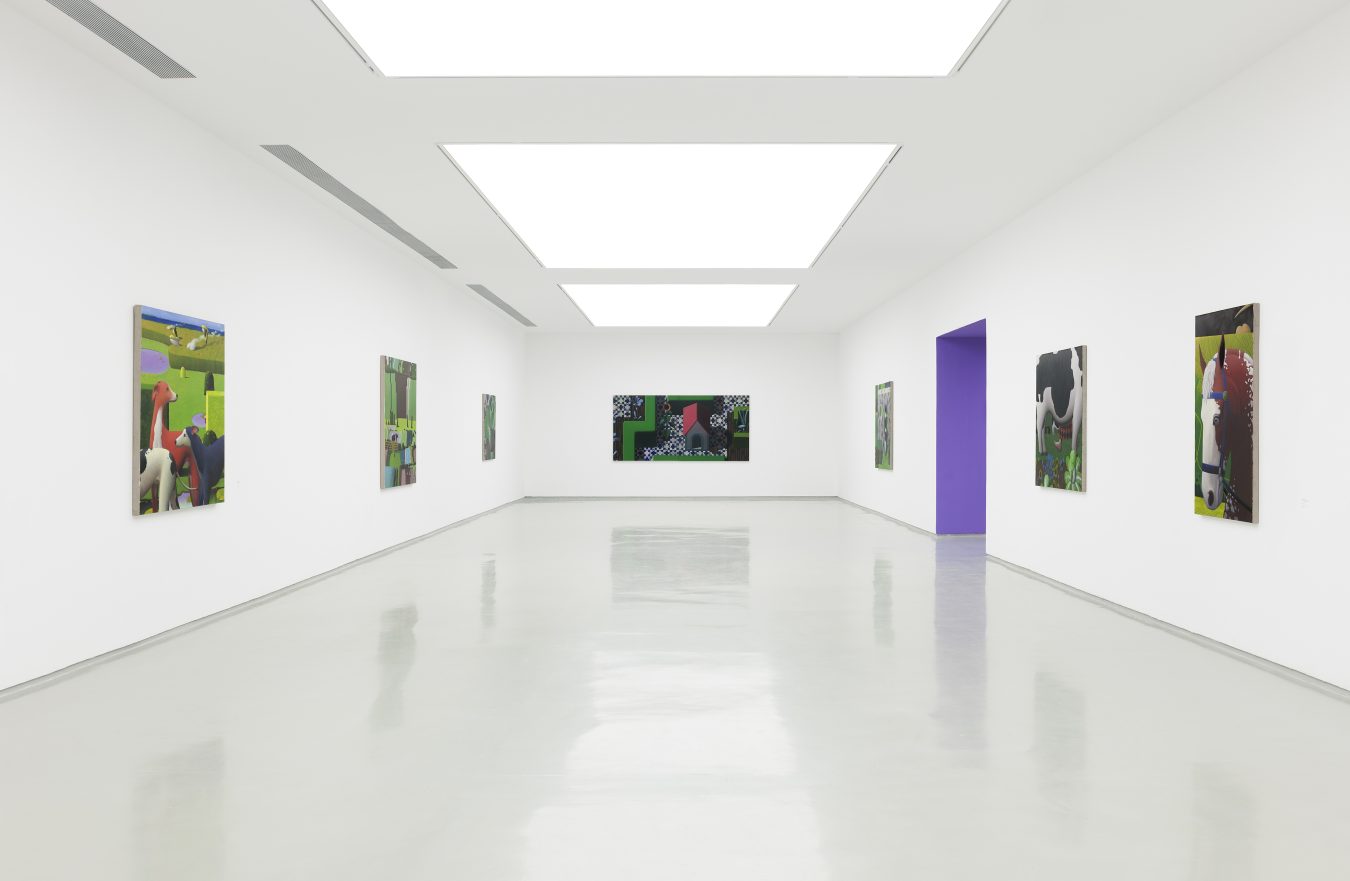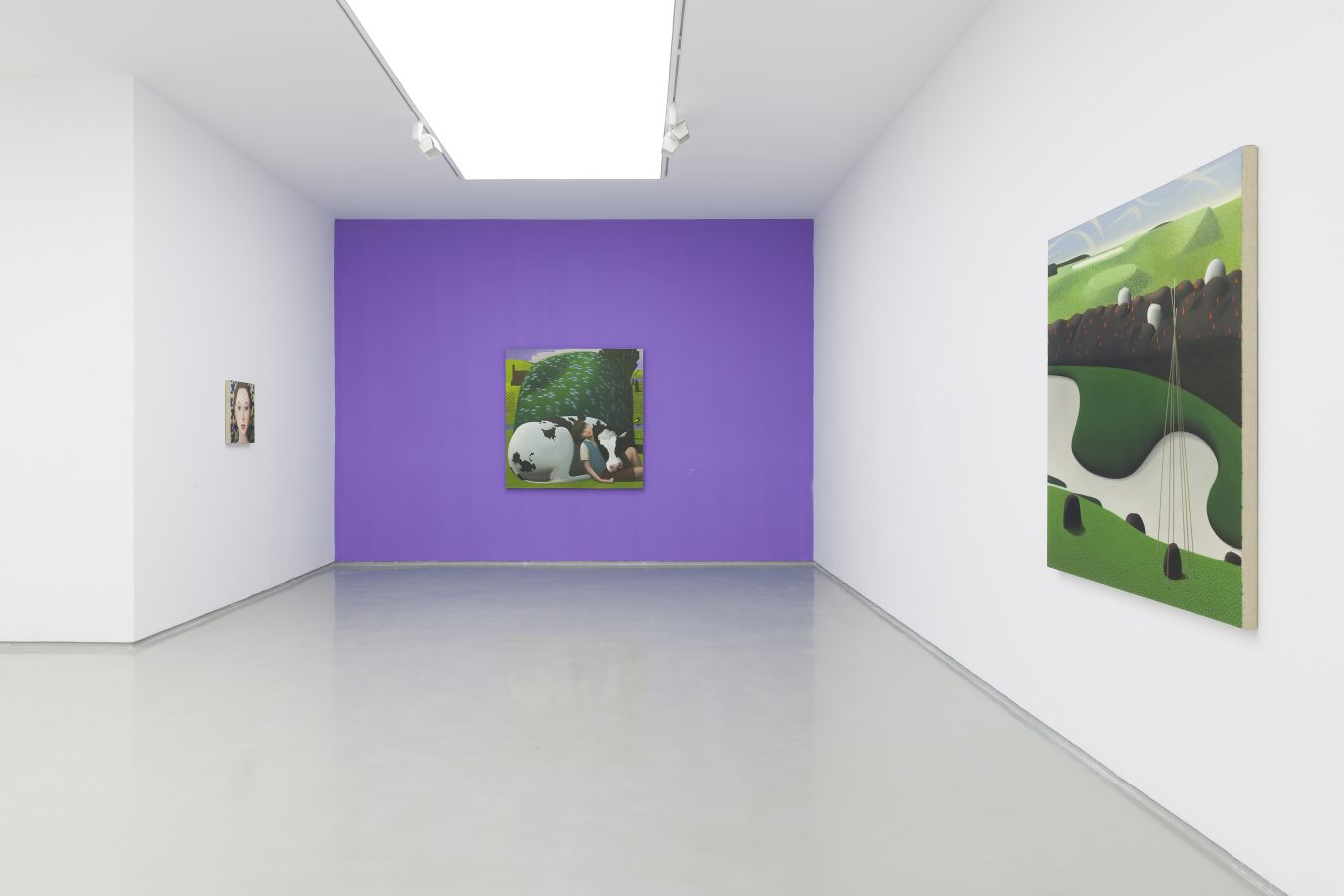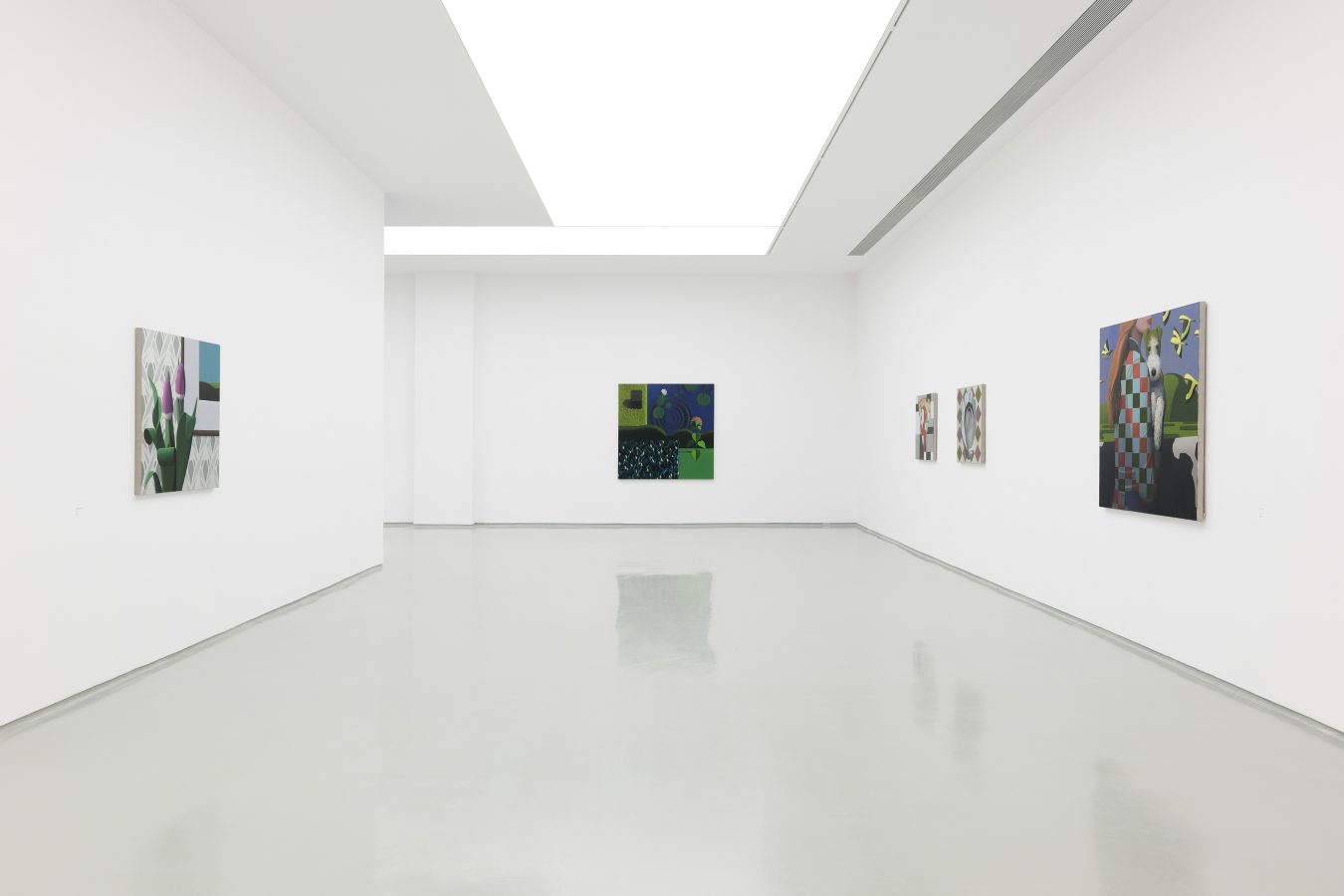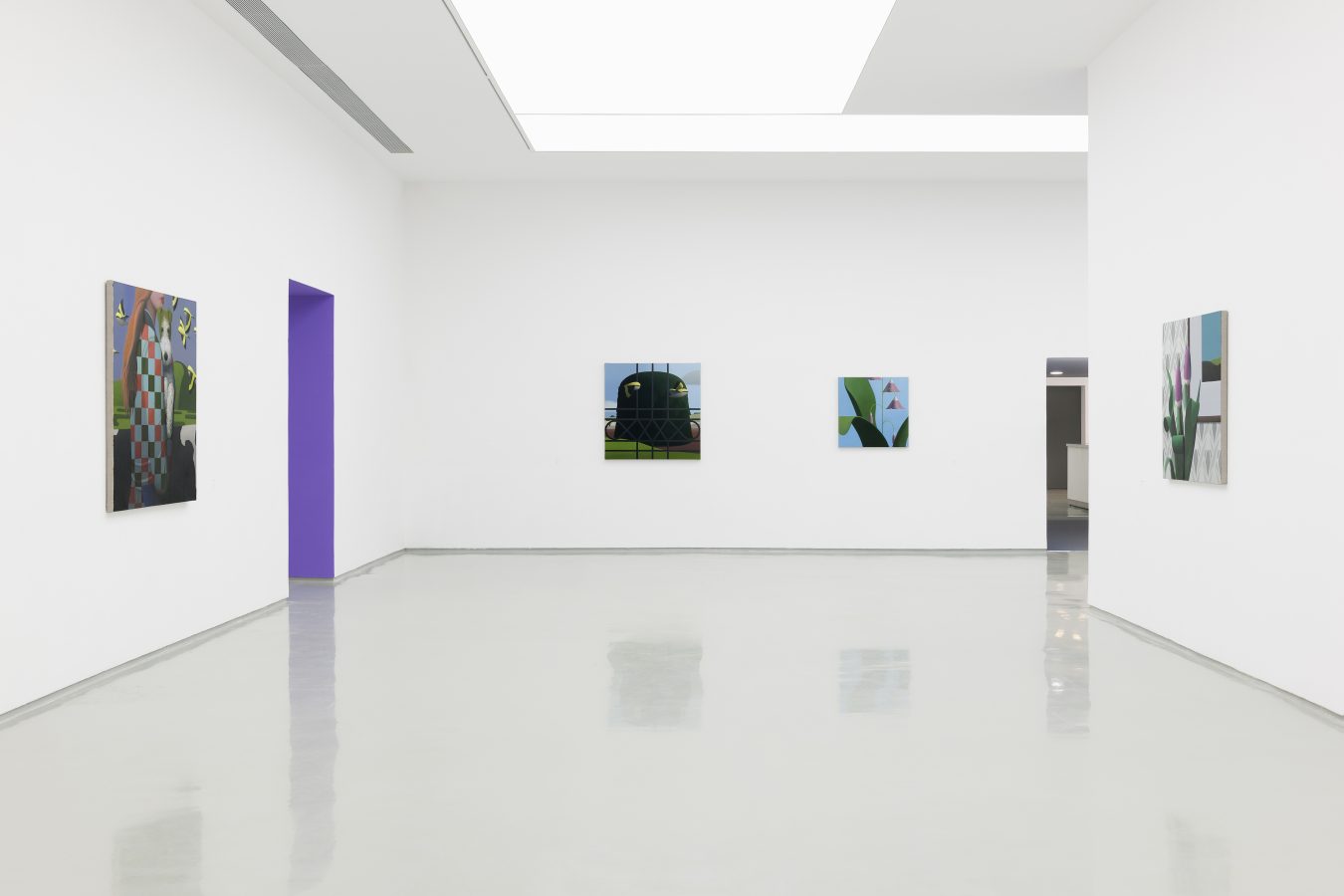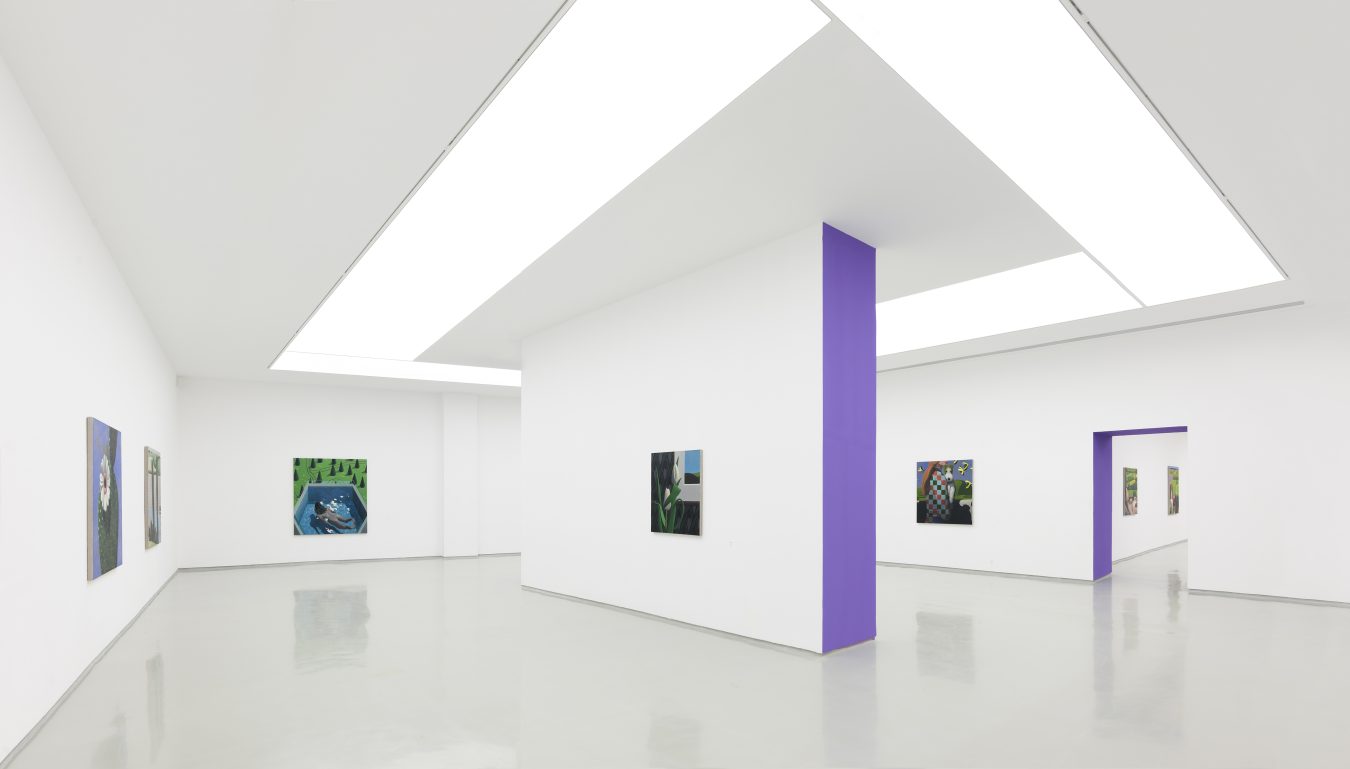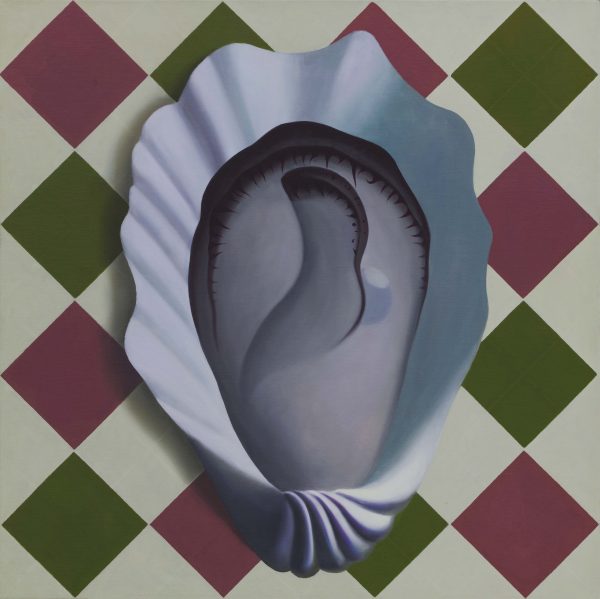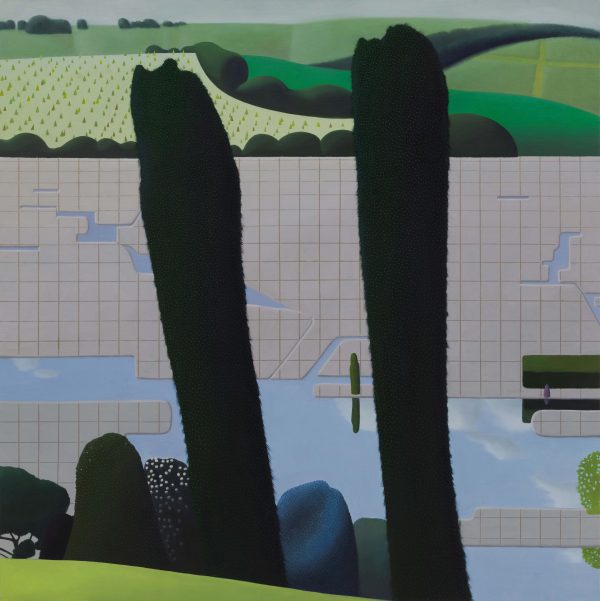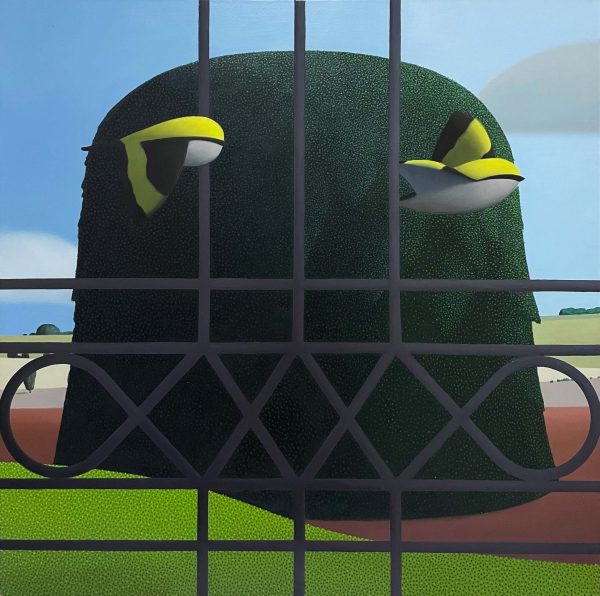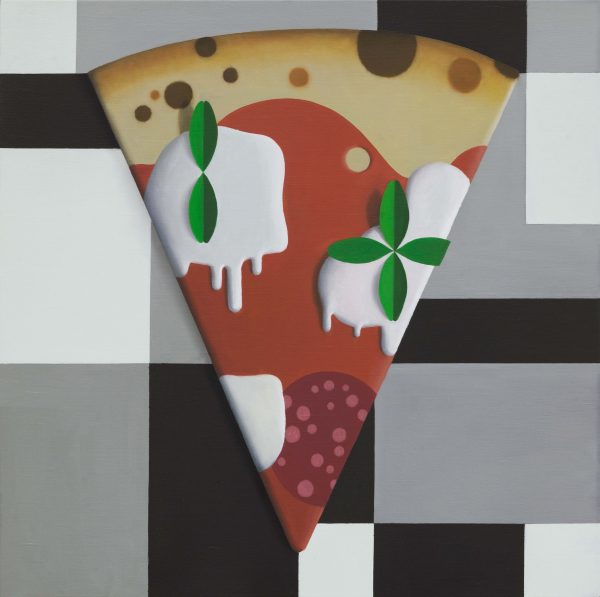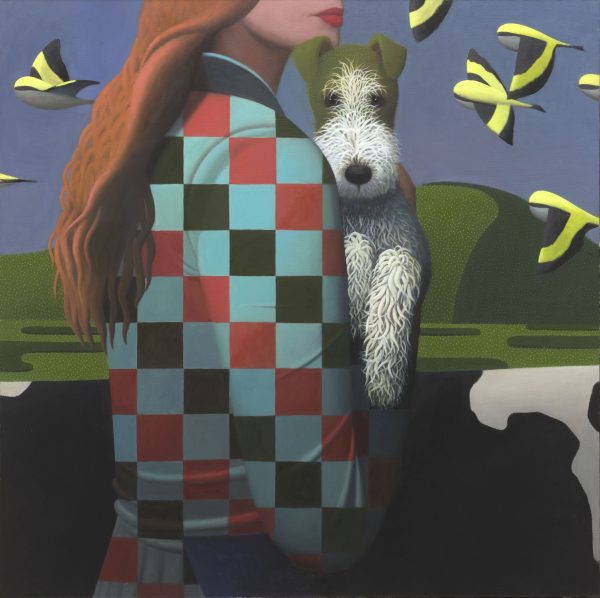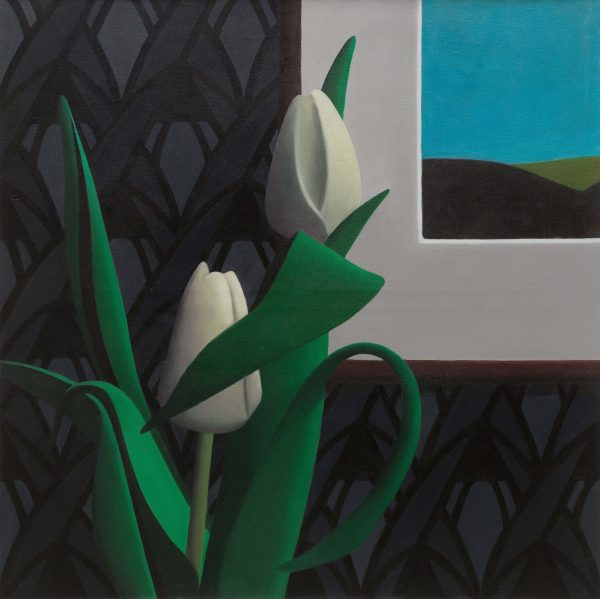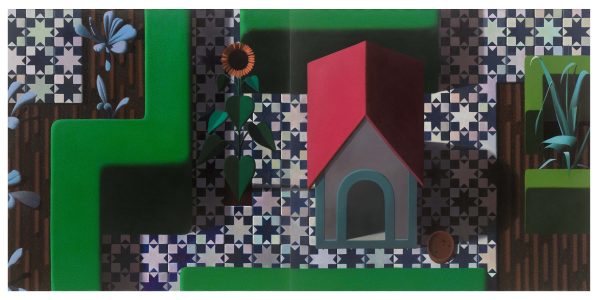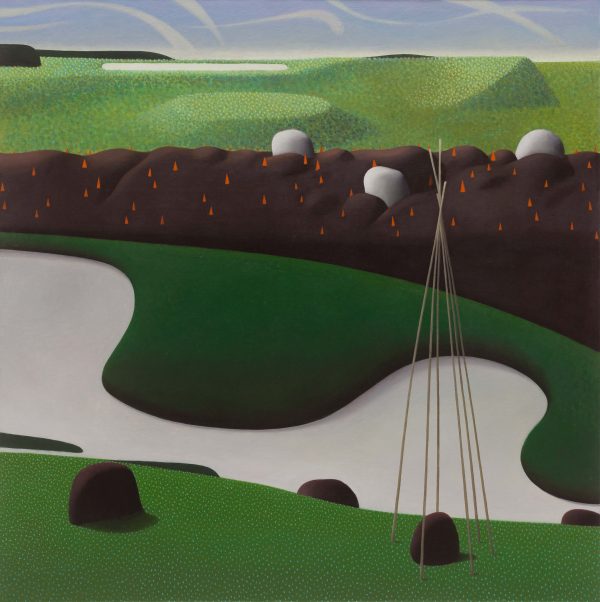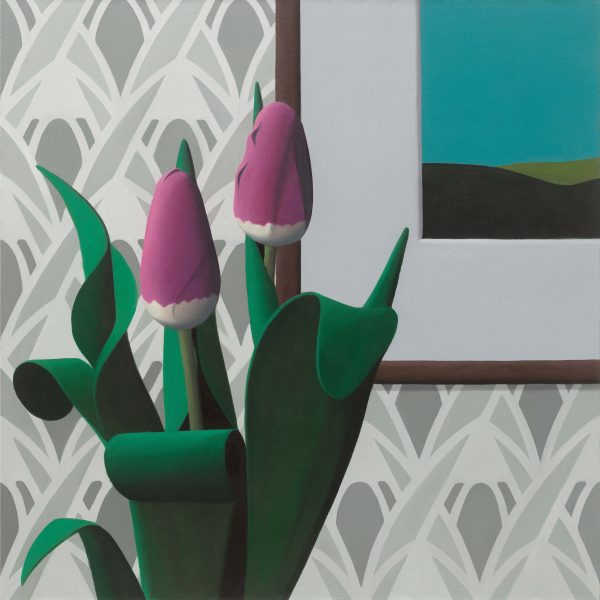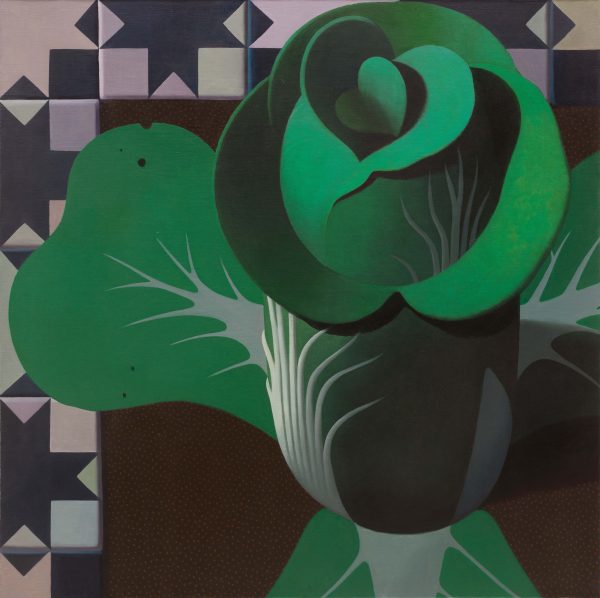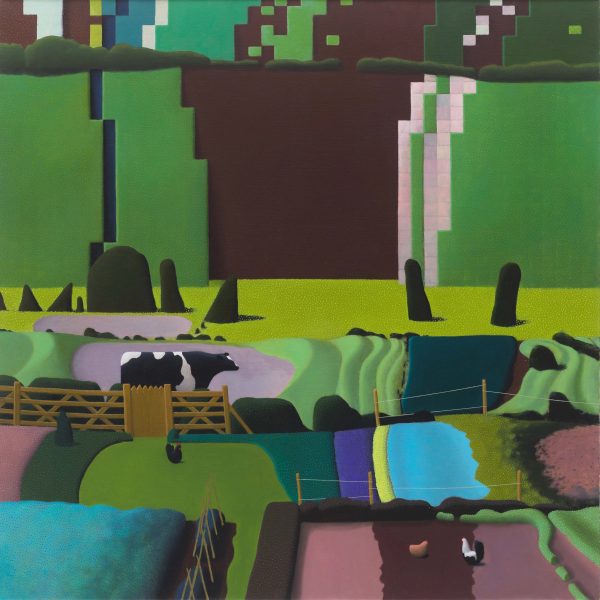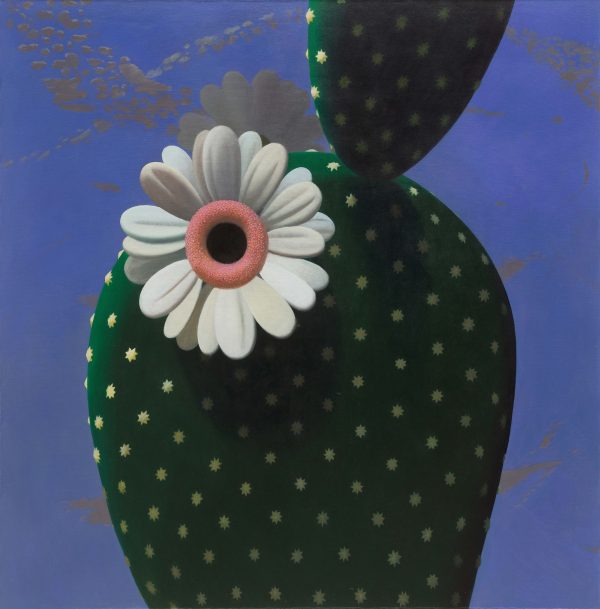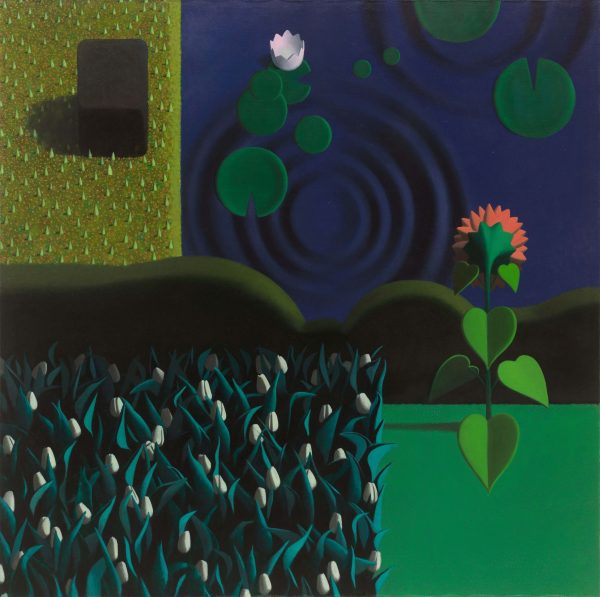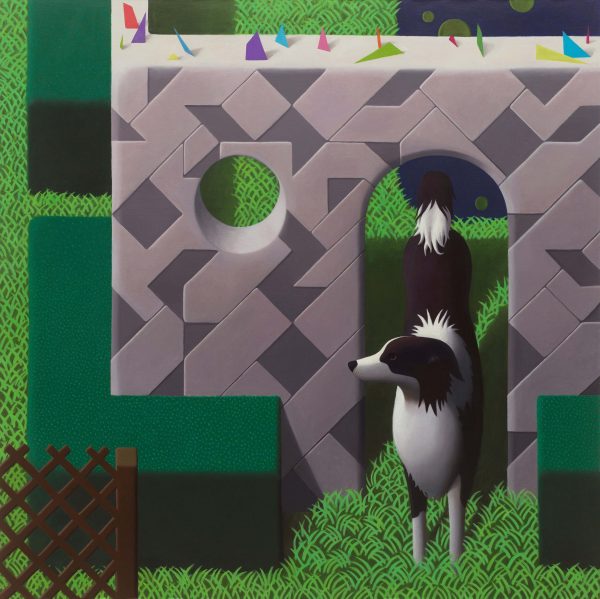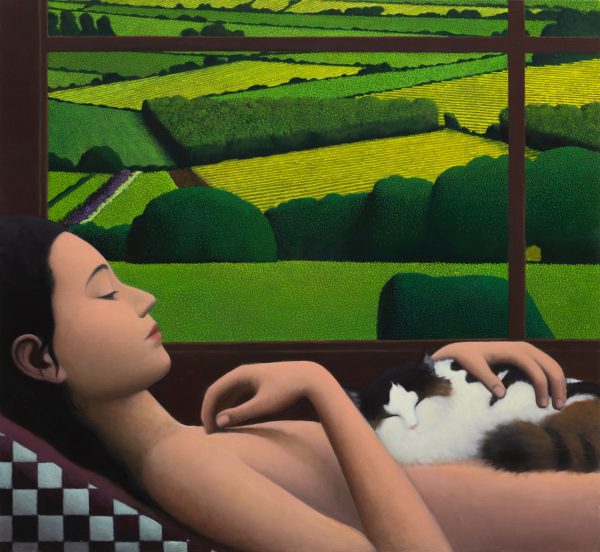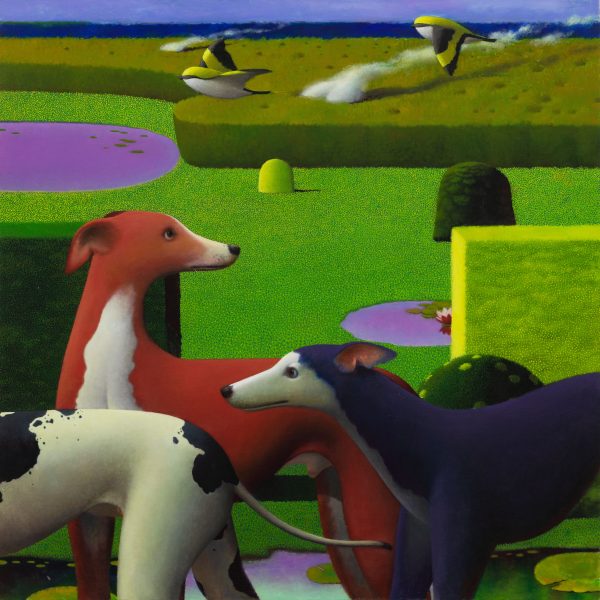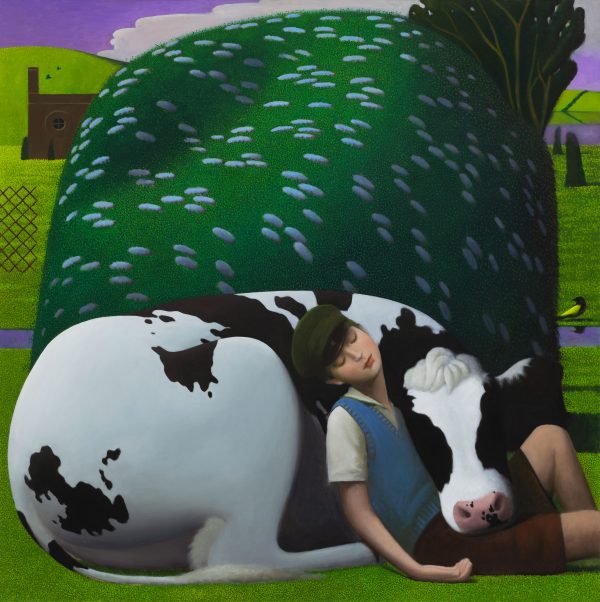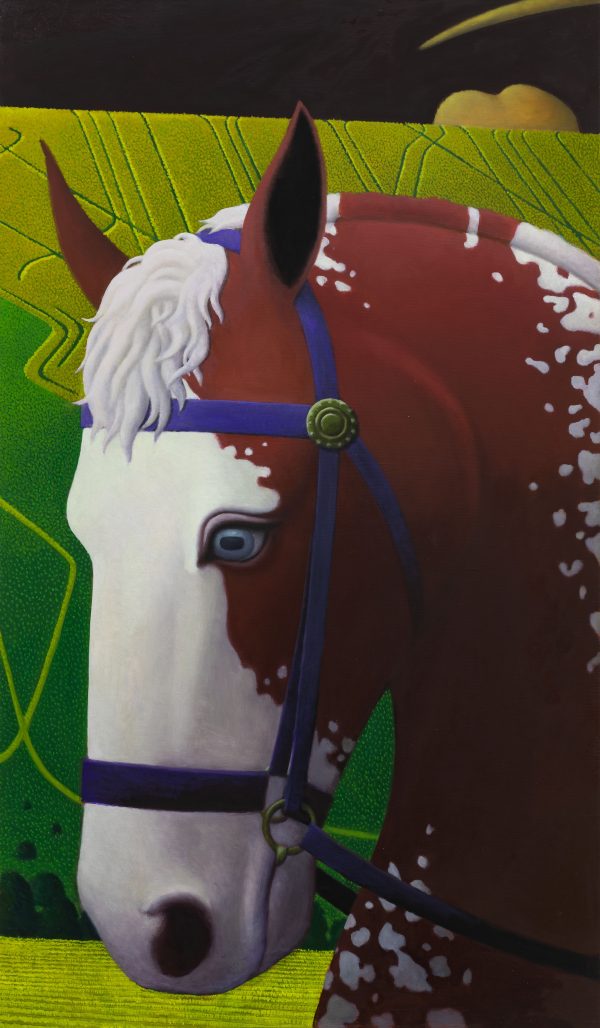Artist: Lu Yu
Curator: Zhao Xiaodan
Hive Center for Contemporary Art is delighted to announce the presentation of Lu Yu’s first solo exhibition, Sunnyside, opening on April 29, 2023, in our Beijing space’s galleries B and C. As the 41st edition of Hive’s Becoming Program, this exhibition will feature more than 20 paintings by the artist from the past three years. This exhibition is curated by Zhao Xiaodan and will be on view until June 6.
Lu Yu, born in Tongchuan, Shaanxi, in 1996, graduated from Xi’an Academy of Fine Arts in 2018 and is currently a graduate student at the Second Studio of the Oil Painting Department of the Central Academy of Fine Arts. A member of Generation Z, her formative years almost coincided with the Internet. The enormous Internet database of users and the diversified values ever loaded behind it, along with the virtual anonymity, dissolve the established identities and burden of morality in reality. The muddled fragments of narrative have prompted the hunting instinct of digital natives to capture the structured nature from the midst of the multitude of disorders. Lu Yu’s contemplation on painting started with the question of creating images that deliver information effectively and rapidly. She deliberately overlaps the protagonists’ scheming as she navigates the virtual interface with her perception of the current trend of games that retire from reality. The highly saturated electric colors and the simplistic, idyllic pastoral landscapes have rendered a strong sense of recognition in Lu Yu’s works.
The term “Epicurus’s garden” derives from the school of philosophy established by the ancient Greek philosopher Epicurus in a garden in Athens. The school advocates surrendering and overcoming the innate fear of natural disasters, the unknown and death while emphasizing that happiness is the only way to achieve self-satisfaction and inner peace. This is rather parallel to the trending positive psychology in which narrative structures are altered to shape people’s positive perception of things and correct the course of events. In addition, Epicurus inherited and developed Democritus’s atomic theory, stating that although the world is made of highly ordinated atoms, sometimes the atoms are skewed in their trajectories and that humans are able to correct this skew through a subjective agency in order to return to a normal life. As such, the several surges of users in more than two decades of the Internet’s evolution have almost always been associated with humans being trapped in the predicament of reality. The contraction-and-relief relationship between reality and virtuality is thus formed, gushing into everyday life in its entirety between tension and release. The virtual world then becomes a forum for projecting desires, releasing stress and healing the mind, in the same way as Epicurus’s theory of rectification.
According to French sociologist Halbwachs, each generation is shaped by the major historical events of its time, and the collective memory of their adolescence will influence the course of their individual life. There is also no equivalent to Lu Yu’s practice, in which the images are inhabited by non-living objects emerging from the matrix. The electronic screens have dissipated the perception and awareness of the substantial physical body of the digital natives who wander within, and the immaterial world based on the logic of consumption is constantly augmenting the human experience of transcendental stimulation. The Internet, which seems to be abolishing borders and differences of times, has inadvertently shaped new circles of barriers based on Internet language. The two structures of visual syntax rendered in Lu Yu’s work precisely accompany her reflections on the environment in which she now inhabits. The well-organized landscapes composed of dots and blocks, and the tender, even plump lines of the animals or adolescent girls and boys at rest reveal the artist’s emotional tension between the two “realities.”
Unlike many artists who struggle and wrestle in the gloom, Lu Yu settles for the bright side; this is inextricably connected to her online lifestyle, in which she often navigates virtual interaction and reaction systems that unleash immediate gratification. The title of this exhibition, Sunnyside, borrows from a short comedy written, directed and composed by Charlie Chaplin in 1919. This short film is a collection of clips consisting of elements such as the nymph, landscape, and leisurely labor, not only sharing a temperament similar to the idyllic and pastoral style in Lu Yu’s work but also revealing an almost inherent naivety of a performer in her practice. Through literary motifs related to “the land of peach blossom,” “running through the night,” and “escape from Eden,” Lu establishes a narrative structure of self-refection from a broader perspective. Not only does this structure retraces the evolution history of landscape and still-life painting that has been marginalized in art history, but it also encapsulates the absence of the human experience of life.
The tranquil and delicate world that Lu Yu creates through her work is perhaps a glimpse into the entrails of the “garden” where Epicurus and his followers lived a simplistic and isolated life. The works in this exhibition present the artist’s intuitive and subjective experience of building in Minecraft in the early stage of her equivocal consciousness. In her paintings, she deliberately introduces diversified visual experiences through the transformation of “shot types” and perspectives. Spinning the wheel of the game, the experiences collected from the virtual world provide her with reverse thinking, thus fulfilling the change of role from passive object to outputting subject. Since then, the “garden” has become a manifestation of significance that transcends the realm of peace and time. In retrospect of the entanglement between body and soul that was once confined, painting has not only become a medium for Lu Yu to reconcile the separation between the virtual world and reality but also a remedy for self-healing as she confronts the gap between the two worlds and reaches for the distance.

